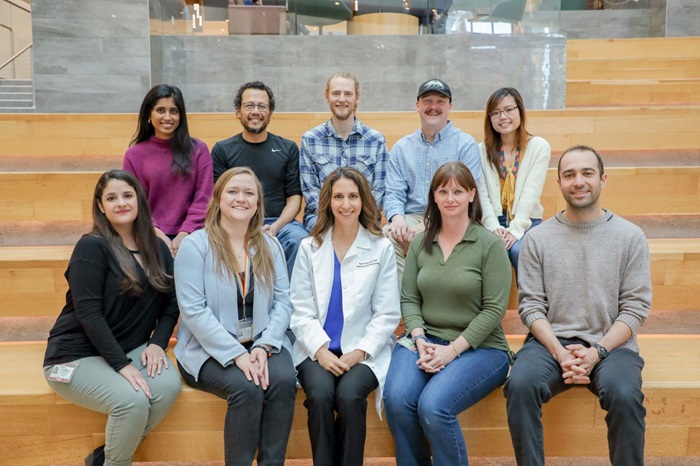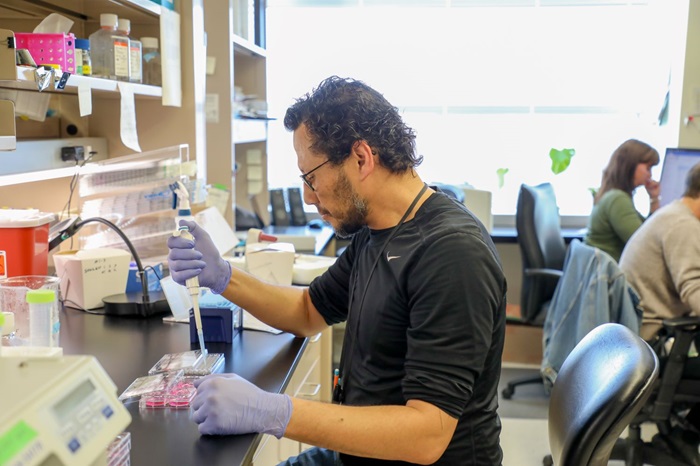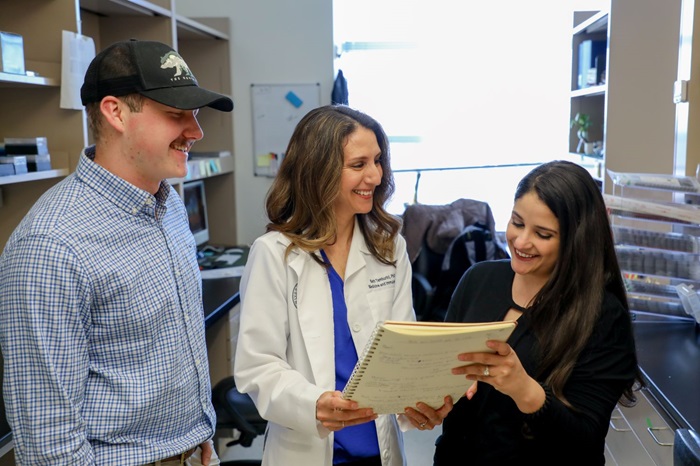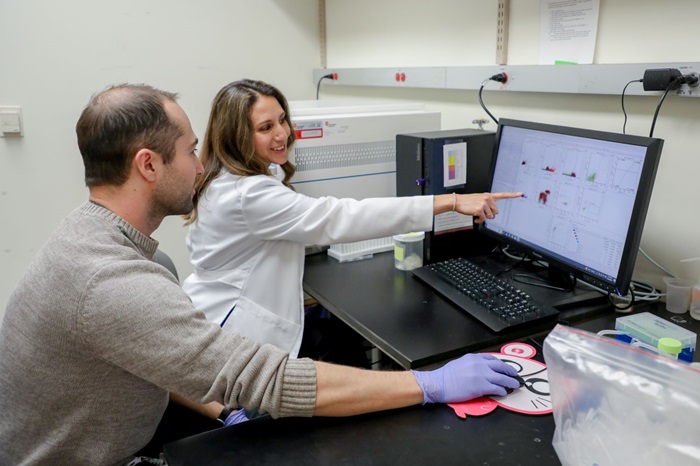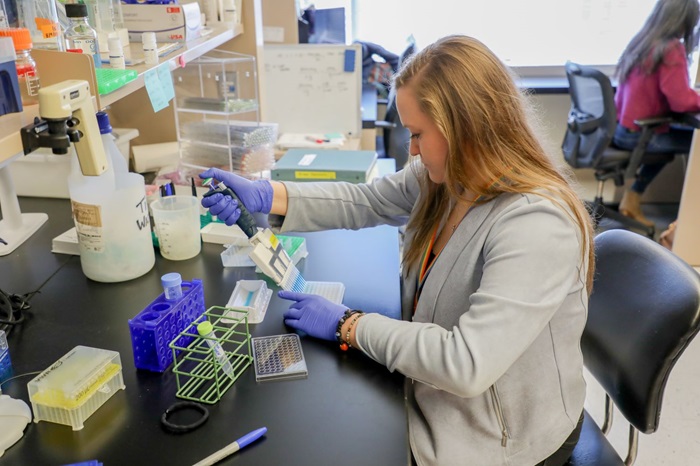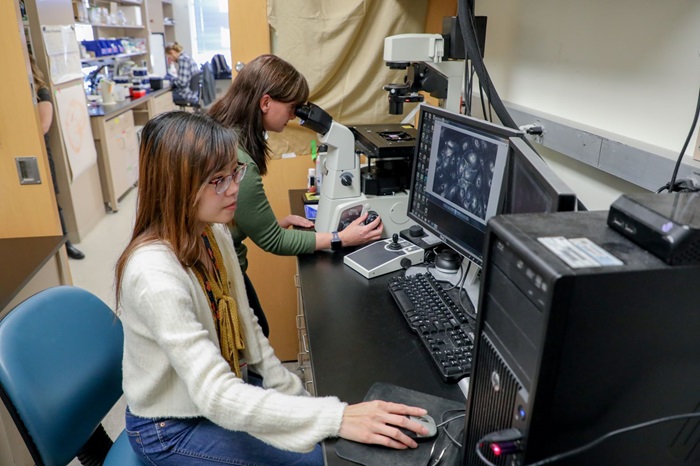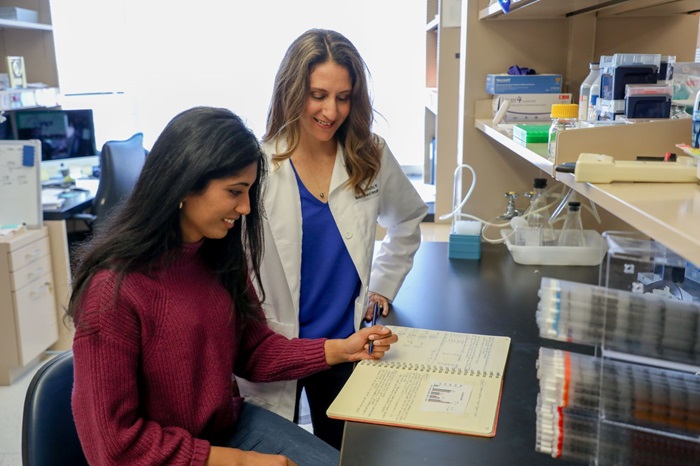Beth Jirón Tamburini Lab
The Tamburini lab focuses on understanding how immune cells interact and traffic through the lymphatic vasculature to facilitate an appropriate immune response. We are also interested in the trafficking of small molecules and antigens through the lymphatic vasculature and into draining lymph nodes during infection, vaccination or during chronic disease such as non-alcoholic steatohepatitis, alcohol related liver disease and primary schlerosing cholangitis.
We are hiring! Please inquire with beth.tamburini@cuanschutz.edu if you are interested in a post-doctoral fellowship within the Tamburini lab.
Research Summary
The overarching goal of my research program is to understand the mechanisms by which lymphatic endothelial cells acquire and retain foreign antigens and interact with dendritic cells to exchange antigens. These studies include understanding how foreign antigens retained by lymphatic endothelial cells in the host impact memory T cell responses, cytokine production and immune memory. In addition, we are interested in understanding how Programmed death-ligand 1 (PD-L1) reverse signaling into immune cells (DCs, monocytes, NK cells, neutrophils) that express PD-L1 affects their trafficking through the lymphatic vasculature or blood during immunization/infection. As differences in migratory capacity of antigen presenting cells impacts T cell activation and signaling these topics are also incorporated into our studies. Finally, our work involves the intracellular signaling events that occur within the lymphatics during chronic liver disease and the impact on liver macrophage, DC, B cell and T cell activation/infiltration when the lymphatics become dysfunctional. Our work aims to understand cell\cell interactions, cell migration, cytokine expression, chemokine receptor/ligand interactions, intracellular and extracellular molecular signaling events, antigen processing and presentation events and vesicle structure/function processes in dendritic cells and lymphatic endothelial cells. While above areas largely focus on innate immune cells we are also studying the implications of these events for adaptive immune responses.
I have developed three main areas of research which incorporate, immunology, molecular biology and GI/hepatology. We aim to understand 1) mechanisms of vaccine or viral antigen retention within lymphatic endothelial cells, exchange of antigen between lymphatic endothelial cells and dendritic cells and the consequences for the adaptive immune response; 2) PD-L1 regulation and reverse signaling in dendritic cells that facilitates trafficking from the tissue to the lymph node following pox virus infections and through the gut and spleen following listeria infection; 3) signaling pathways in response to highly oxidized low density lipoprotein that alter lymphatic function within the liver and impede liver health (collaboration with the Burchill lab).
Our lab utilizes a number of programs on campus to enhance our expertise and collaborations including the GI and Liver Innate Immune Programs, the Human Immunology and Immunotherapy Initiative, the Consortium for Fibrosis Research and Translation, and the RNA Bioscience Initiative.
Complete List of Published Work in My Bibliography:
Tamburini Lab Contact:
12700 E. 19th Ave. B146
Room 10490
Research Complex 2
Aurora, CO 80045
Lab: 303-724-0130
Beth Tamburini:
Office: 303-724-0182
Office location: P15-10122
